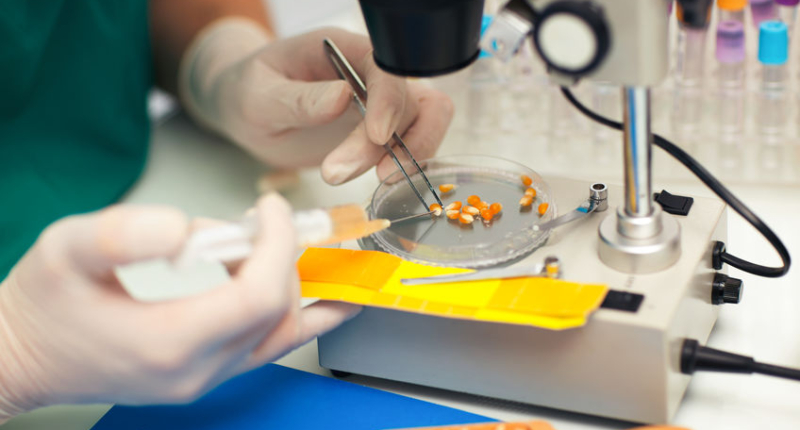The Genetic Technology (Precision Breeding) Bill has become law in the UK after years of campaigning by the farming industry. This new law allows scientists to use gene-editing methods for research and development purposes. Biotechnologies like gene editing have the potential to combat pest and disease pressures on crops and farm animals, boost animal health and welfare, and increase crops’ resilience to extreme weather events. Precision breeding will be regulated differently from genetic modification. The new law is expected to play a significant role in boosting sustainability on farms and increasing food security. The UK is home to some of the world’s leading research institutions in this area. Giles Oldroyd, Professor of Crop Sciences at the University of Cambridge, said that the new law was a crucial development that opened up new possibilities for agricultural science.
Precision Breeding Bill Becomes Law in the UK
The Genetic Technology (Precision Breeding) Bill has become law in the UK, following years of campaigning by the farming industry. The new law, which gained Royal Assent on Thursday, March 23, 2023, will allow scientists to use gene-editing methods for research and development purposes. This is a major departure from EU policy, and it will enable the UK to develop and market precision-bred plants and animals.
The new law is expected to play a significant role in boosting sustainability on farms and increasing food security. Biotechnologies like gene editing have the potential to combat pest and disease pressures on crops and farm animals, boost animal health and welfare, and increase crops’ resilience to extreme weather events.
Precision breeding will be regulated differently from genetic modification (GM). Gene editing is a group of technologies that make changes within the organism’s own DNA by moving, adding, or deleting precise pieces of genetic material. In contrast, GM technologies involve inserting new DNA from a different species into an organism’s genome.
The National Farmers’ Union (NFU), which has been campaigning on this issue for two decades, welcomed the bill’s passing. NFU Vice President David Exwood said that access to more targeted precision breeding tools could help bolster climate-friendly food production and support biodiversity. However, Mr. Exwood noted that the passage of the Bill was only the first step. He said that regulations must be fit for purpose if the law is to provide a meaningful boost to food resilience and security.
The UK is home to some of the world’s leading research institutions in this area, such as the James Hutton Institute in Dundee. Giles Oldroyd, Professor of Crop Sciences at the University of Cambridge, said that the new law was a crucial development that opened up new possibilities for agricultural science. He added that the UK was in a race to climate-proof food systems, and conventional breeding alone could not keep up with the rapidly changing challenges of new growing conditions. Professor Oldroyd said that UK science and research had made extraordinary advances in this field over the last 30 years, and this law expanded the remit of scientific exploration, which could only bring benefits.
Don’t miss interesting posts on Famousbio









